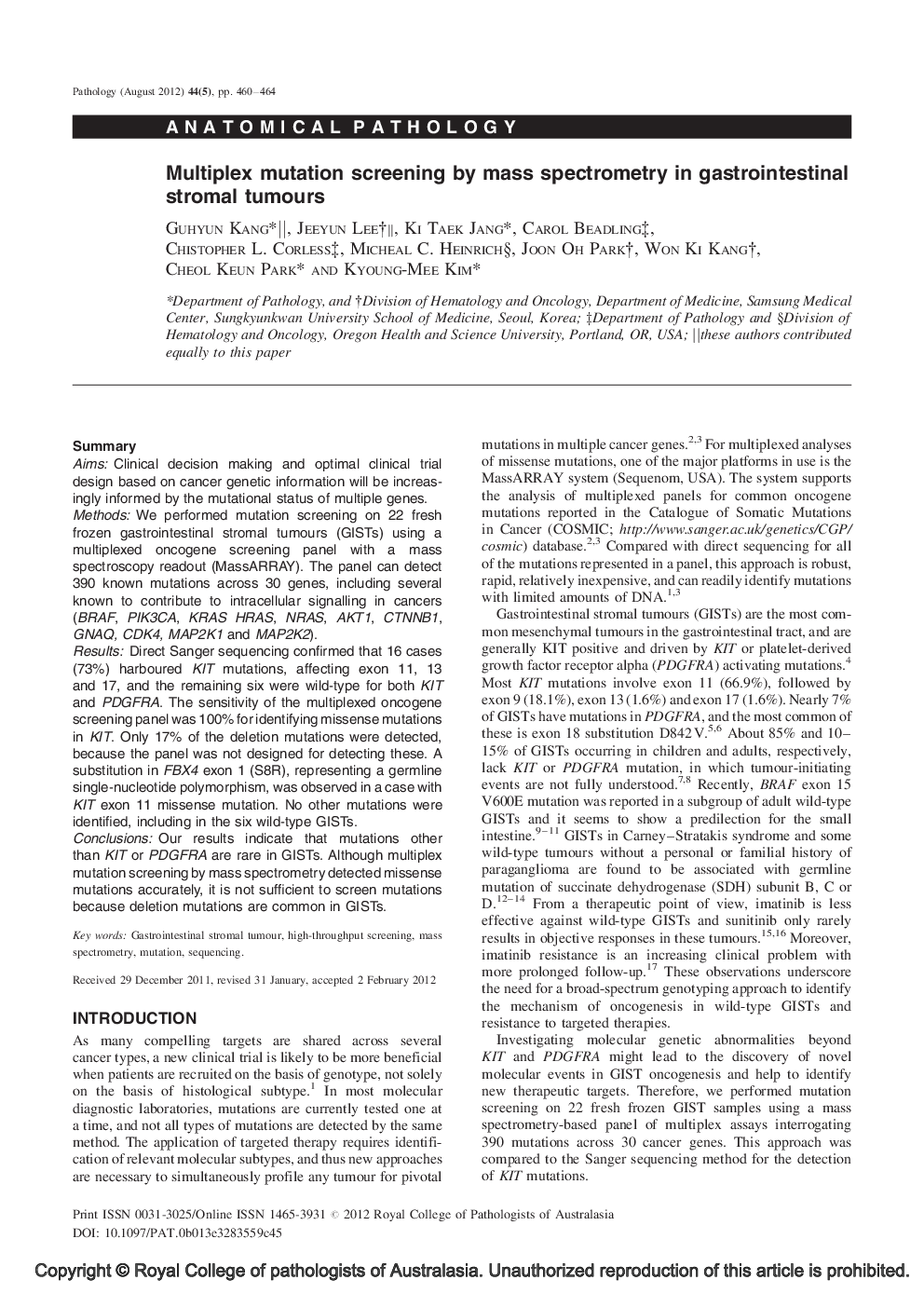| Article ID | Journal | Published Year | Pages | File Type |
|---|---|---|---|---|
| 104887 | Pathology | 2012 | 5 Pages |
SummaryAimsClinical decision making and optimal clinical trial design based on cancer genetic information will be increasingly informed by the mutational status of multiple genes.MethodsWe performed mutation screening on 22 fresh frozen gastrointestinal stromal tumours (GISTs) using a multiplexed oncogene screening panel with a mass spectroscopy readout (MassARRAY). The panel can detect 390 known mutations across 30 genes, including several known to contribute to intracellular signalling in cancers (BRAF, PIK3CA, KRAS HRAS, NRAS, AKT1, CTNNB1, GNAQ, CDK4, MAP2K1 and MAP2K2).ResultsDirect Sanger sequencing confirmed that 16 cases (73%) harboured KIT mutations, affecting exon 11, 13 and 17, and the remaining six were wild-type for both KIT and PDGFRA. The sensitivity of the multiplexed oncogene screening panel was 100% for identifying missense mutations in KIT. Only 17% of the deletion mutations were detected, because the panel was not designed for detecting these. A substitution in FBX4 exon 1 (S8R), representing a germline single-nucleotide polymorphism, was observed in a case with KIT exon 11 missense mutation. No other mutations were identified, including in the six wild-type GISTs.ConclusionsOur results indicate that mutations other than KIT or PDGFRA are rare in GISTs. Although multiplex mutation screening by mass spectrometry detected missense mutations accurately, it is not sufficient to screen mutations because deletion mutations are common in GISTs.
